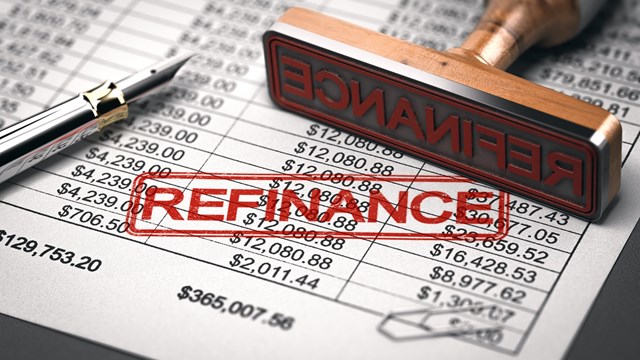The last couple of years have been tempestuous for everyone involved in the real estate industry, and the New Jersey market is certainly no exception. 2010 has been a wild year for real estate across the country, and industry experts say that the direction 2011 takes depends upon many factors; political, economic, and financial.
The stability of the economy and the stock market, or whether the government will offer new incentives for homebuyers are two of the many factors that could influence the markets for co-op and condo apartments in the coming year. Possible changes in political leadership resulting in heavier taxes on real estate sales could also sock it to HOA boards and managers.
“2010 was one of the most challenging years that our industry has ever seen,” says Bonnie Bertan, president of Association Advisors, a property management firm in Freehold. “Associations had to face the obvious obstacles—a struggling economy, falling property values, large cut backs in salaries and bonuses—and when that wasn’t enough to deal with, Mother Nature bombarded these communities with a tremendous amount of snow and a very dry summer.”
Slowdowns and New Deals
Despite suggestions from some quarters that the economy is in recovery mode, fears remain that we may yet experience a so-called “double-dip” recession. Even so, many tri-state real estate industry professionals are hopeful that the worst has passed. Apartment pricing in many areas has stabilized (though down to levels of two or three years ago in some communities), ending a downward slide in many areas, and prices in some areas—particularly in towns closer to Manhattan—seem to be on the upswing again.
Allan “Dutch” Dechert, president-elect of the New Jersey Association of Realtors (NJAR) and principal of Ferguson Dechert Real Estate in Avalon, said forecasting is difficult without knowing what will happen with crucial factors affecting housing such as employment, property taxes, foreclosures and prices. “The challenges we see right now are job uncertainty and mortgage availability,” Dechert said. “Banks are looking hard at mortgage applications these days.”
Some, not all, banks have relaxed their lending criteria—if only slightly—and more mortgages are being written, albeit rather slowly.
“Obviously, we've seen a significant downturn in new construction,” added Paul Santoriello of Taylor Management in Cedar Knolls. “But we have seen a number of new management companies enter the marketplace. Our industry has matured so much that start-up companies without a lot of experience or connections in the industry are probably finding it a little bit more difficult than it used to be.”
According to Tony Nardone of Dovan Management in Bloomfield, the recession has thrown budget and finance issues into sharp relief for even the most solvent communities. “Boards are extremely skittish about going back to their residents with increases. They're scrutinizing contracts more now that they ever have in the past. Some boards are more in tune than others, but more and more boards and board members are really paying close attention.”
Nardone adds that many contractors are taking clients' struggles into account and getting creative with how they structure contracts. “Most of the contractors are responding by being proactive on their end, by offering two- or three-year contracts for the same price that they had this year, with no increase. We've even seen insurance companies reduce their price by a little bit because it's certainly easier to keep existing business than it is to generate new business—and a lot of that really holds true for 2011.”
HOAs for their part are demanding more from their contractors, Nardone continues. “They're definitely looking more accountability,” he says. “No more is it 'Okay, the contractor did 95 percent of the work, let's just pay [the bill] and get somebody else do the last little bit.' That may have been the policies in the past or the way the board members felt, but moving forward, they want every ounce of blood and then some. And rightfully so. You should get what you pay for—and they definitely want that from their vendors and suppliers. That's really where it's all focused now.”
Brighter Horizon?
Despite the wariness of some in the market, many brokers feel the upcoming year could be a very busy one, with a slight uptick in property values due partly to the lack of new inventory coming online. For at least much of 2011, the buyers’ market will continue, says Stephen G. Kliegerman, executive director of development marketing at Halstead Property, a brokerage that does business in New York and New Jersey.
Locally, in New Jersey existing-home sales were sharply lower following the expiration of the homebuyer tax credit but home prices continued to gain, according to the National Association of Realtors (NAR). Existing-home sales, which are completed transactions that include single-family, townhomes, condominiums and co-ops, dropped 27.2 percent in the U.S., and are 25.5 percent below July 2009. Regionally, existing-home sales in the Northeast dropped 29.5 percent and are 30.3 percent lower than a year ago. The median price in the Northeast was $263,800, up 4.8 percent from July 2009.
According to the NAR, “There are still great opportunities now for buyers who weren’t able to take advantage of the tax credit. Mortgage interest rates are at record lows, home prices have firmed and there is good selection of property in most areas, so buyers with good jobs and favorable credit ratings find themselves in a fortunate position.”
“It’s still the ideal time to buy, with low interest rates, a stable marketplace and lower prices,” added Kliegerman.
Brokers and other industry watchers caution that the favorable market likely won’t continue forever and could even be over before the end of 2011. Because of the uncertainty, they say people are moving cautiously and are extremely wary of over-paying. Proper pricing and presentation of properties are more important than ever.
On the management side, Santoriello says that despite the slow-down in new construction, “Once [an HOA] is built, it has to be managed, and that's one of the nice things about our industry—the reality is it's very steady and dependable business, and if you're good at it, you do get the opportunity to continue to grow because there are a lot of associations that aren't being handled in a way that makes them happy.”
Santoriello adds that as incoming president of the New Jersey chapter of CAI, he supports the introduction of a bill that would require licensing for community association managers New Jersey. “That's something that I've worked on the committee,” he says, “and I want to hopefully continue to push that forward as president of CAI next year.”
Others caution that even if the market trends upward and lending gets back on track, other challenges may present themselves. “I see utilities becoming the big issue,” says Nardone. “This is a personal opinion, but I think water's going to be a huge issue. Certainly, your gas and electric is going to be up there. That's going to be the focus moving forward in the years to come. And the question is, how do we prepare our communities for that today? I think there's a lot of things out there communities can do if they just have to have a responsible property manager/management company to discuss those options with. Whether it's through them educating the manager or the management company educating them, somehow there has to be communication.”
“While I don’t have a crystal ball,” says Bertan, “my prediction is the new American Way: reduce costs. Board members and managers are trying to save money everywhere they possibly can. In some cases reducing costs and in others actually eliminating services or reducing their frequency to avoid an increase in dues. Living in an association used to be easy: you paid a low fee to get a plethora of services. Unfortunately as these communities have aged they are in need of repair and the funding in most cases is not available. This has been an industry problem for many years, but crisis was avoided by special assessments. Now the banks are more selective, and are looking at the financial health of the association. Chronic assessments, low reserves and high numbers of arrears make it impossible for many owners to get funding out of their investment.”
Wishes Granted?
Along with cost-cutting, experts also say that continued low interest rates would be helpful in spurring activity in the market. Other financial measures also could bear fruit. “I’d like to see the banks slightly ease up on qualification requirements,” Kliegerman says.
On the management front, Nardone says that he'd like to see boards take a more meticulous, proactive approach to managing their HOA's business, during meetings and otherwise. “This is the stability of your community,” he says, “and you should be focused on it. You should be asking direct questions. You should be looking at contracts. I want boards to communicate amongst themselves and just be more responsible.”
Jonathan Barnes is a Pittsburgh freelance writer and a frequent contributor to The Cooperator.







Leave a Comment